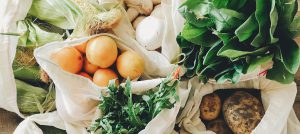
Australia hasn’t exactly been a leader in online grocery. The Land Down Under has been growing about five years behind the UK, both in terms of online grocery and fulfillment capabilities. Pre-COVID, online sales were only 4% of total supermarket sales in Australia, compared with 10% in the UK. But since COVID hit, grocers have made a decade’s worth of progress, and grown at remarkable speed.
COVID-19 Caused a Surge in Demand
Since COVID-19, Australia has seen a phenomenal change to the online grocery sector, and a huge increase in the amount of volume going through the online channels through Coles, Woolworths, and some of their competitors.
Many of the reasons behind this shift are obvious. COVID forced the use of online grocery for elderly or vulnerable Australians because they simply couldn’t go to supermarkets. Regulations also halted free movement. Supermarkets were put on restricted trading hours and were able to open for only 14 hours per day, versus the usual 18. The number of people in a store at one time was also limited, which caused a huge inconvenience for customers who had to line up just to go in the store. These limitations pushed consumers to move online.
What’s less obvious is that COVID caused a shift in eating behaviors. With restaurants shut down, people spent a lot more time at home cooking and required more ingredients. Many shifted from buying easy-to-make meals to buying more “scratch products.” Rather than buying bread, for example, people bought ingredients to make bread from scratch.
Online Sales Are at an All-Time High
These trends led to a boom in sales. Grocers saw both an increase in transactions and higher order values because their customers were adding more items to their baskets than in pre-pandemic times.
Commercially, this meant more vans on the road and deliveries per shift, which allowed grocers to scale economies and meet increased demand.
Online sales for Woolworths have gone up, and in the first quarter of this financial year, they were up signifcantly from last year.
Coles Online is up year over year, and is now seeing growth total overall grocery sales. While this may not seem as significant as Woolworths’ growth, it is. Coles shut its online operations down at the start of COVID to focus on doing emergency deliveries for elderly Australians, which obviously deterred growth significantly.
Sales Will Continue Climbing with Innovation
Grocers that didn’t have an online platform in March quickly learned that they needed to get one. Now that they have, online is a way of life — not just for Gen Z and millennials but also for all generations.
But innovation shouldn’t end with online delivery. Australians should continue to evolve their systems so they can replicate the “quick delivery” experience that is happening overseas. In the UK, for example, Sainsbury’s consumers can say, “I want it now,” and their deliveries arrive within an hour or two.
Subscription models is another area where Australian grocers should continue to innovate. For consumers, it’s harder to stop than it is to keep going in a subscription model. As a result, grocers receive routine orders from customers month over month, without the customer ever actually going through the motions to make the order.
Food manufacturers are starting to step in here, and have been thinking about how to get products directly to consumers through a subscription model. They have a huge opportunity to change the traditional model by establishing an emotional connection with consumers and cutting out the middleman — thereby saving customers money and earning loyalty.
Looking Forward
The future for Australian grocery is incredibly exciting. The market is now established, with significant investment over recent months to improve capability and capacity.
The question now is where brands can innovate and disrupt the market. Brands that can meet the customer needs for health, wellness, and convenience will be the ones to drive growth.
About Alister Jordan
Alister Jordan finished a decade at Wesfarmers/Coles on November 2019, where he held several leadership positions. Currently he is consulting to a number of companies and is the Chair of London-based HR tech firm Howamigoing Ltd. While at Coles Group, Alister held the position of Chief Executive. He concurrently ran Coles Group’s petrol and convenience chain, Coles Express, for two and a half years. Alister was also the Chief Operating Office of Target Australia with responsibility for the Sourcing, Supply Chain, IT, and Online divisions of the business.
About Mark Field
Mark Field is the Founder and Director of Prof Consulting Group, a Melbourne boutique food consultancy launched in November 2019 and operating across five strategic business units. Prior to that, he held a number of senior roles within Coles Group Limited until June 2019, holding the title of Head of Own Brand, where he managed the single-largest food brand in Australia, covering fresh food, grocery and frozen food, and a strong nonfood offer. Before this, Mark held the position of Group Technical Director at 2 Sisters Food Group Ltd. in the UK. He is also a Board Director at the Glycemic Index Foundation. He is also an Associate/Expert at Discount Retail Consulting.
This grocery industry article is adapted from the December 15, 2020, Remote Roundtable “Fresh Take on Online Grocery in Australia.” If you would like access to the transcript for this event or would like to speak with grocery industry experts like Alister Jordan, Mark Field, or any of our more than 900,000 industry experts, contact us.
订阅 GLG 洞见趋势月度专栏
输入您的电子邮件,接收我们的月度通讯,获取来自全球约 100 万名 GLG 专家团成员的专业洞见。
